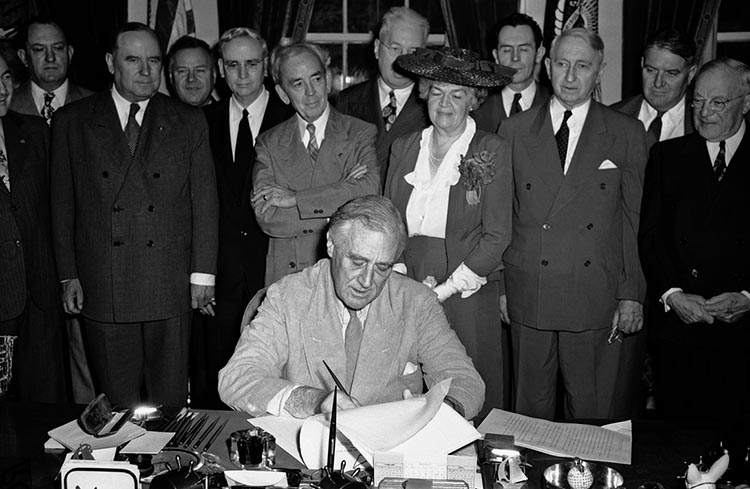
Jay P. Greene’s Blog
People who claim to base their policy prescriptions on rigorous evidence often rely on research that may not apply in the current context. Assuming that findings hold true across time and place is as hazardous as Wile E. Coyote relying on his ACME blueprints.
Case in point, research on the effects of introducing the original GI Bill are often trotted out to support expanding subsidies for higher education. For example, Bound and Turner (2002) found that the introduction of the GI Bill after World War II significantly increase educational attainment and college completion rates. Angrist (1993) found that users of the GI Bill from the Vietnam era went further in school and increased their earnings by 6 percent. If federal subsidies for enrolling in higher education were good for WW II and Vietnam veterans almost a half century ago, then expanding the GI Bill for current veterans must be even more beneficial.
A new study by Andrew Barr and colleagues, however, finds that the more generous Post 9/11 GI Bill (PGIB) appears to have actually reduced the earnings of current veterans 7 years after they left the military. The PGIB did increase educational attainment, but only by a tiny amount. As the study put it, “These impacts are not large given the generosity of the program and the responses found in studies of earlier GI Bills. Angrist (1993) found that veteran’s benefits on average raised schooling by 1.4 years. We are finding average increases of 2 months!”
Because the Post 9/11 GI Bill is much more financially generous than the previous GI Bill, this tiny gain in educational attainment was achieved at great expense. The researchers describe it, “Given the increase in bachelors attainment of 2.75 percentage points and an average increase in benefits of $8600, this implies a cost per additional bachelor’s degree of around $313,000.”
And despite this small increase in college completion at very high cost, the recipients of this new GI Bill actually experienced a reduction in earnings: “Our most remarkable findings are the negative impacts on labor income for the sample of veterans exposed to the program. Seven years after their separation from the Army, the PGIB lowered wages by about 1.8 percentage points.”
The study’s authors do not believe that these negative effects on earnings will be reversed over time. Instead, they explain this enduring reduction in salary for veterans now sent to college as caused by the overly generous nature of the PGIB subsidy luring veterans into enrolling in college even when they would benefit more from practical work experience: “Our hypothesis is that the negative earnings returns stem from (a) the low value-added of many of the schools chosen by veterans under the PGIB combined with (b) the generosity of the BAH, which may be inducing veterans to forego valuable labor market human capital accumulation in favor of very marginal school enrollments. By pursuing schooling opportunities of marginal value, veterans may be missing out on opportunities to build occupation- or firm-specific human capital or to immediately put their Army-taught skills to work in the labor force.”
Human beings are complicated. Even when you have rigorous evidence showing that a policy worked well in the past, applying that policy with more resources at a later time might produce the opposite effect. The over-confidence of technocrats claiming that they can engineer a better society with evidence-based solutions is actually inconsistent with a scientific approach. This doesn’t mean we should never try policies and hope to make improvements, but it does mean that circumstances are ever-shifting and evidence is very context-dependent, so we should be cautious about what our tinkering is likely to produce.
Photo: Politico
Read Jay P. Greene’s Blog here

